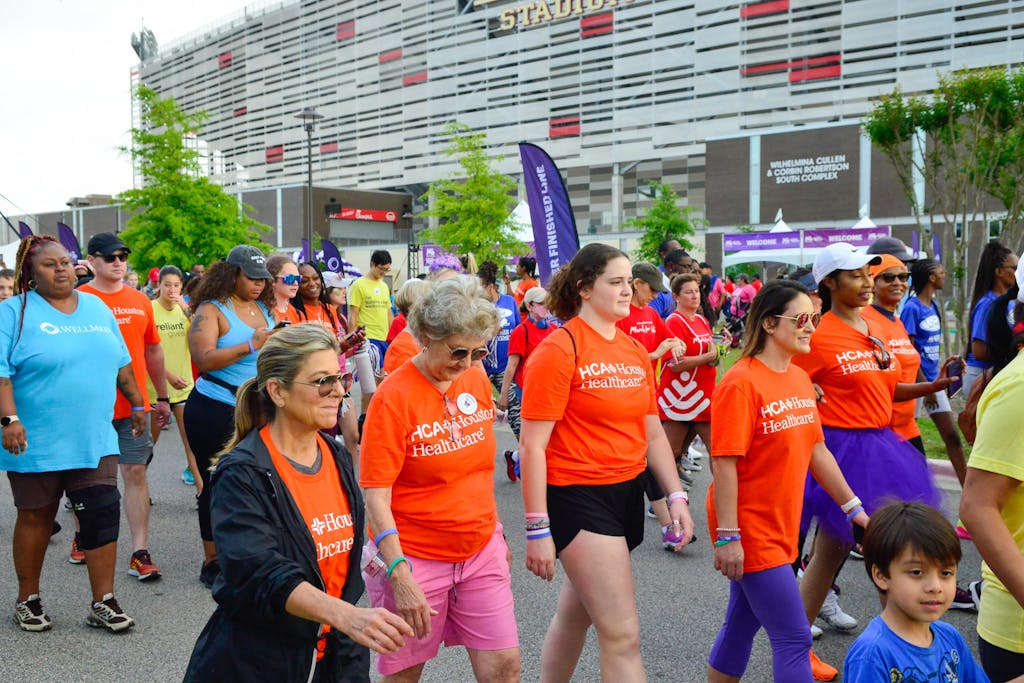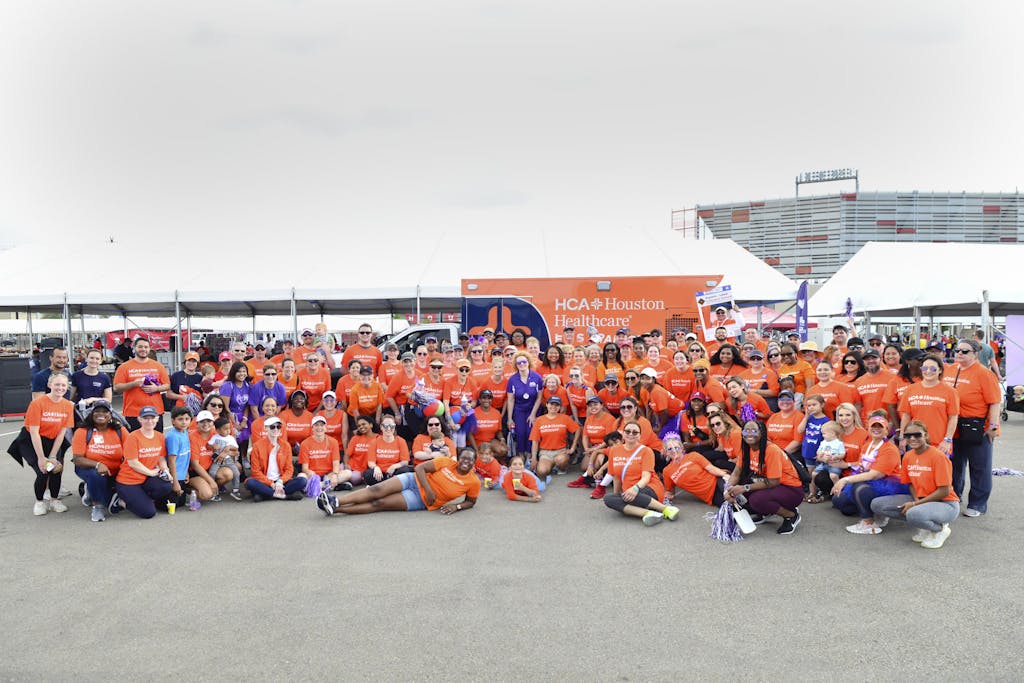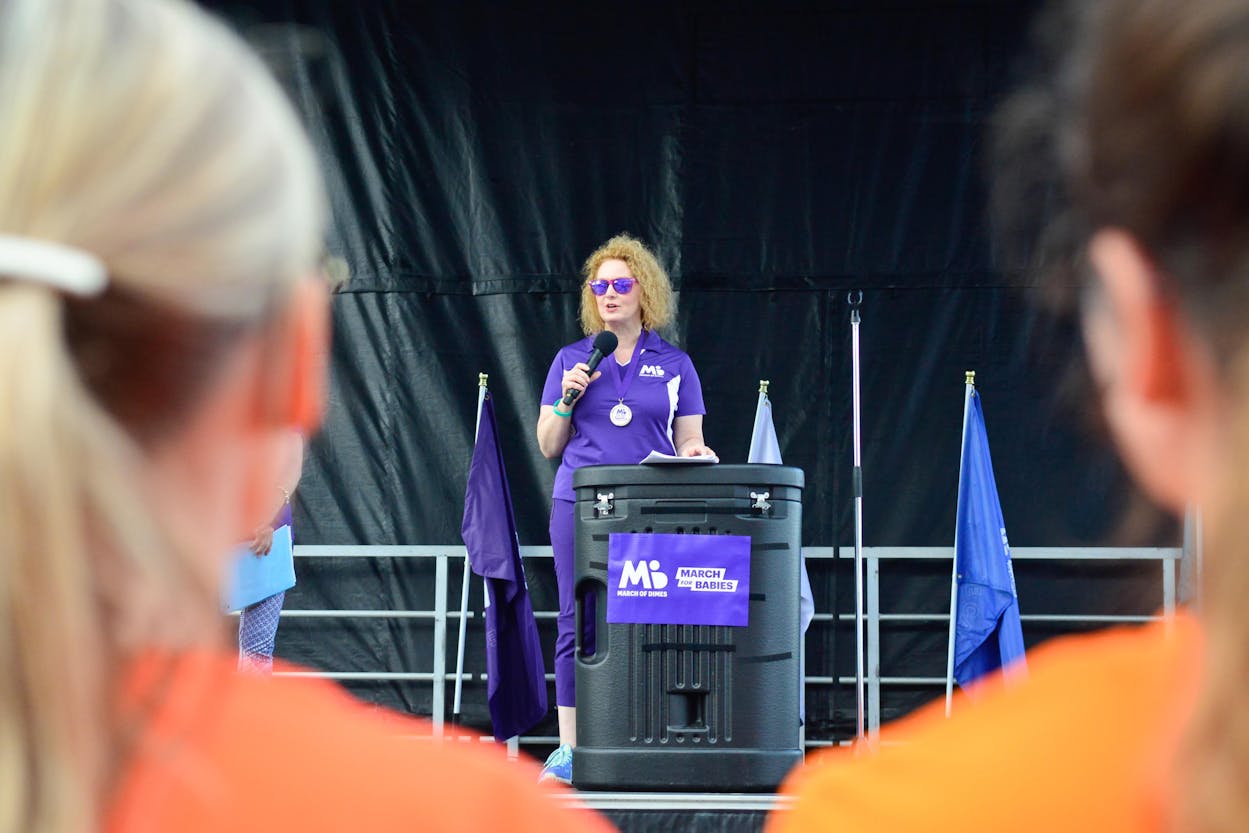There’s a moment before a hurricane hits where everything seems still. People and their pets huddle in the safest possible corners of their homes, and the only sound you hear is the wind barreling down the street.
But there’s one place that remains active as ever, humming with activity throughout the storm.
As Jeanna Bamburg puts it, “Babies can’t wait, and we don’t want any of our other patients to wait either.”
Bamburg is deeply entrenched in the Houston community. She is also the former CEO of HCA Houston Healthcare Southeast and the new CEO of The Woman’s Hospital of Texas in Houston. As such, she has seen—and worked through—just about every disaster man, God, or the weather decides to throw at the city.
“We’ve delivered tiny neonatal babies in the middle of a hurricane,” she says. “Even when you’re in the eye of the storm, there are some things you just can’t put off. That’s what we’re here for.”
This is the traditional role of a hospital and its people. When called to serve, doctors, nurses, and leaders like Bamburg roll up their sleeves and get to work. But this service is just one part of what HCA Houston Healthcare provides its community. Before, during, and after a crisis, the family of hospitals is dedicated to strengthening the heart of Houston: its people. By forging powerful community partnerships and investing time and financial resources into a variety of volunteer initiatives, HCA Houston Healthcare is addressing key issues, including education, food insecurity, health equity, and well-being.
“We believe that when you are a part of a hospital, you become a part of the community,” Bamburg says. “You might be delivering babies in a storm on Tuesday, but on Wednesday, you’re volunteering for your neighbors.”
For Bamburg herself, that work takes many forms. For instance, during her tenure at HCA Houston Southeast, she was a member of the Rotary Club of Pasadena, one of the most diverse and underserved communities in the Greater Houston area. As part of its efforts to give children all the tools they need to be successful early in their schooling, the club annually donated a dictionary to all third graders in the Pasadena Independent School District. It was a beautiful community partnership, Bamburg recalls, and she’ll always remember the kids’ reactions. “So many of the children were crying,” she says, “because, for the first time, they had their own book.”

In 2023, Bamburg will continue her widespread community involvement by serving as the chairperson for the March of Dimes Houston March for Babies for the second consecutive year. Every dollar raised at the event funds research to prevent premature births, birth defects, and infant mortality. Recently, the Houston march raised $1.5 million (over $315,000 of that total came from HCA Houston Healthcare).
Bamburg is acutely aware of the effect of burnout on her hospital’s nurses and physicians, and she and her fellow leaders are deeply invested in providing mental health and well-being resources for their people. In its own way, the March for Babies is just another way to care for the caretakers.
“We use it as an anti-burnout event,” she says. “We’re always looking for ways to connect our people to causes they care about, and they get so many therapeutic benefits from volunteering or marching alongside their neighbors.”
In fact, even before the COVID-19 pandemic fueled a nursing shortage and cast a spotlight on mental health, HCA Houston Healthcare entered a partnership with the Center for Houston’s Future (CHF) to identify and predict the most important long-range issues facing Houstonians.
Together with CHF, HCA Houston Healthcare publishes yearly, in-depth reports on critical topics such as the social influences on maternal health. Brett Perlman, CEO of the Center for Houston’s Future, considers HCA Houston Healthcare an invaluable partner.
“We have to start thinking about these problems as issues that require everyone working together, instead of thinking of them as healthcare problems that are the responsibility of healthcare institutions alone,” Perlman says. “HCA has been instrumental in that regard because they have such a large footprint in Houston. They have a very good perspective about what’s going on in the community.”
“We believe that when you are a part of a hospital, you become a part of the community.”
Jeanna Bamburg, CEO of The Woman’s Hospital of Texas and former CEO of HCA Houston Healthcare Southeast
That perspective has helped the partners develop a comprehensive strategy for addressing critical challenges like maternal health. For instance, HCA Houston Healthcare and CHF have taken a community-by-community approach to scaling solutions, as what works for one section of the city might not work for another. Further, the two partners have engaged businesses with robust recommendations on how to better support their employees and in turn, improve maternal health.
“If we’re going to continue to be a high-growth city and region,” Perlman says, “then better addressing some of the social determinants has to be part of the economic growth strategy.”
This partnership is one example of HCA Houston Healthcare’s prescient investment in their city and its people. Kim Williams, the organization’s assistant vice president of community engagement, thinks of these partnerships as a means to “build healthier tomorrows” for her city.
“I’m so proud we’re investing in our communities,” she says, “because there is no reason Houston should have an ‘F’ on its maternal health report card from the March of Dimes. I don’t want an F; I want an A.”

That’s why HCA Houston Healthcare and March of Dimes, a leading nonprofit in maternal health, have partnered on a data-sharing project. The goal is to implement policies and practices that improve the health of mothers and babies, and to that end, there’s already been some progress. Facilities like The Woman’s Hospital of Texas where Bamburg works use standardized protocols that help prevent blood clots and premature deliveries while managing hypertension during pregnancies. Rain or shine, mothers throughout Houston can get consistent, top-tier treatment at any HCA Houston Healthcare facility.
“We’ve been able to do some really great things,” says Williams, noting a $135,000 grant the HCA Healthcare Foundation recently gifted to the American Heart Association. That grant helped create mobile food markets for areas with little to no resources for healthy food. “We have nice farmers’ markets in the Houston area, but we have them in more affluent areas,” she notes. “You can’t limit health to one segment of the population. That’s not what we’re called to do.”
Ultimately, leaders like Williams, Bamburg, and everyone at HCA Houston Healthcare has taken the same approach to community involvement that they use in the hospital: do anything you can for the people you serve.
“There’s not always going to be a hurricane,” Bamburg says. “But there’s always going to be someone in need. If we can help them before they’re in crisis mode, then that’s what we’re going to do.”






